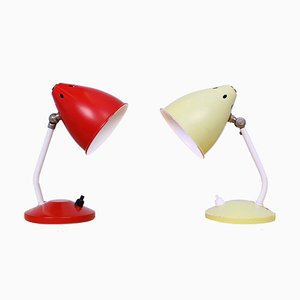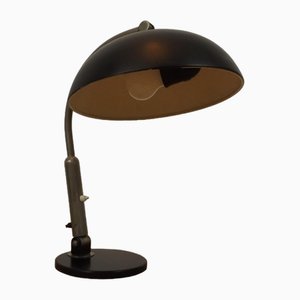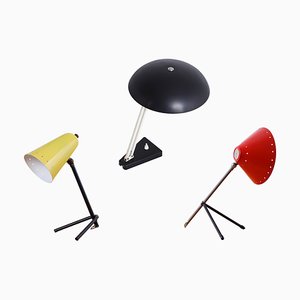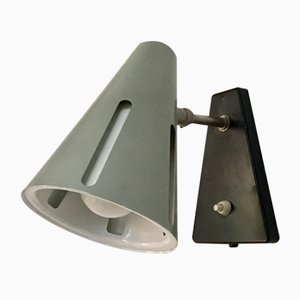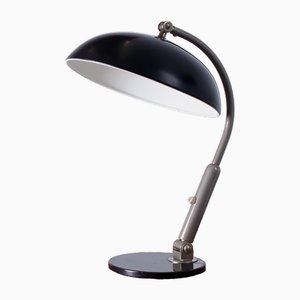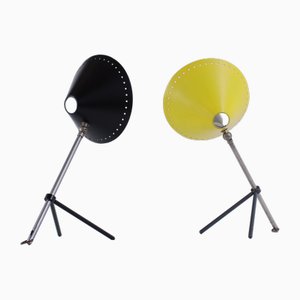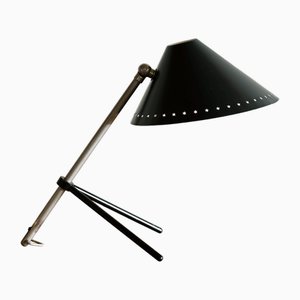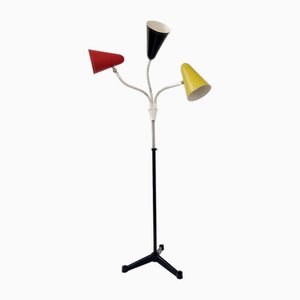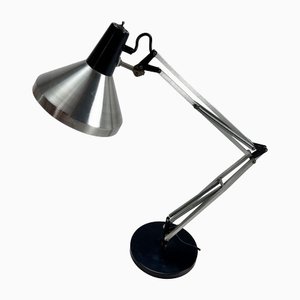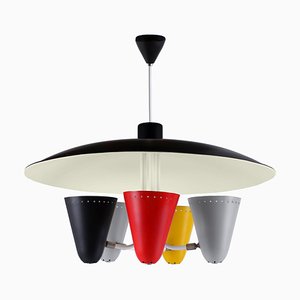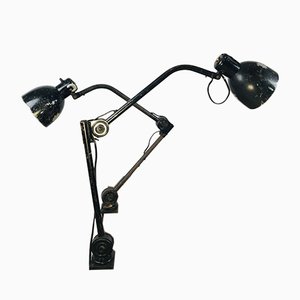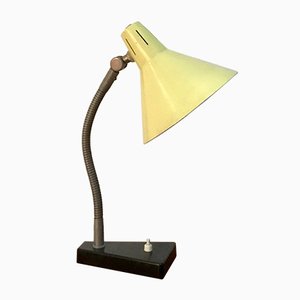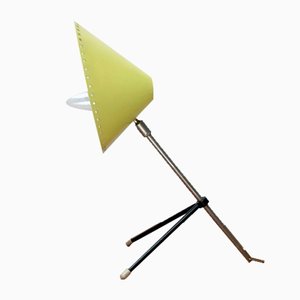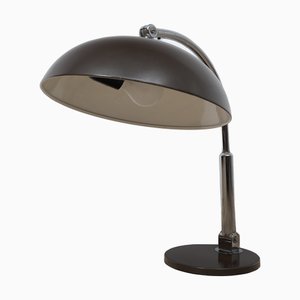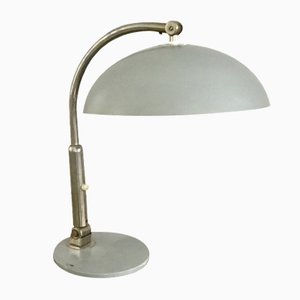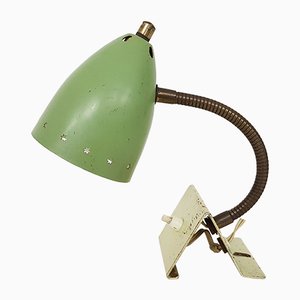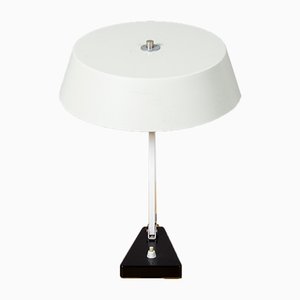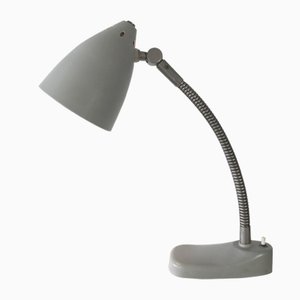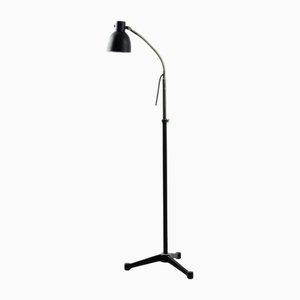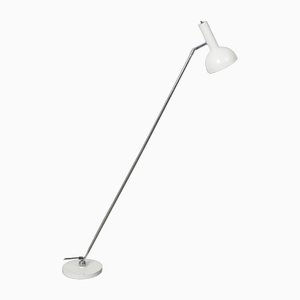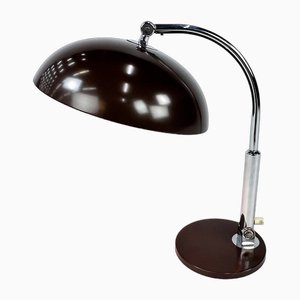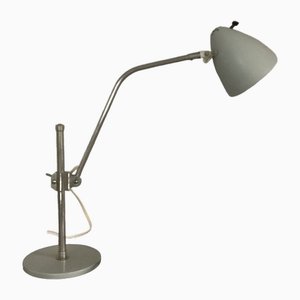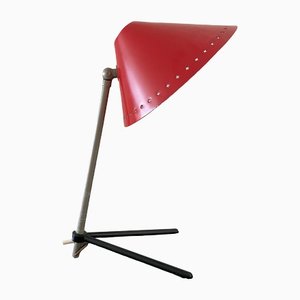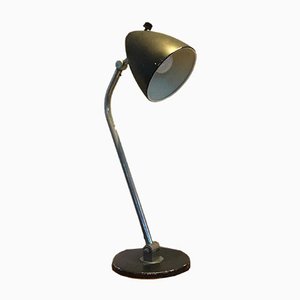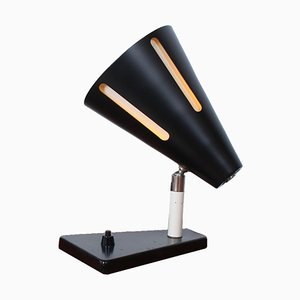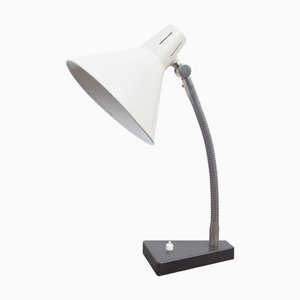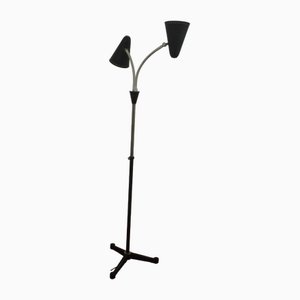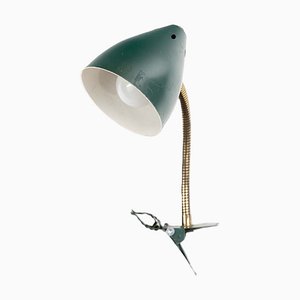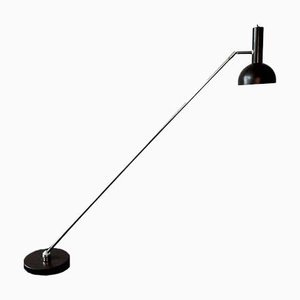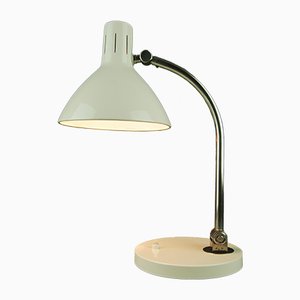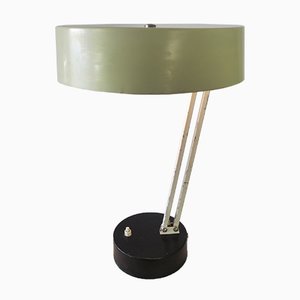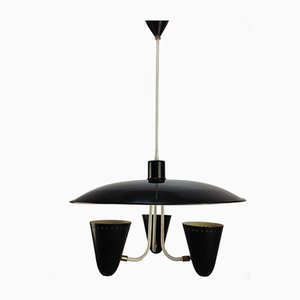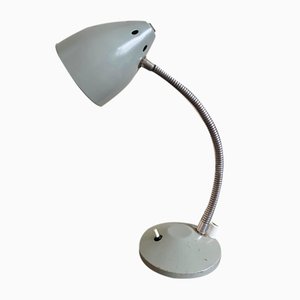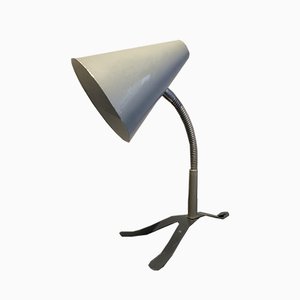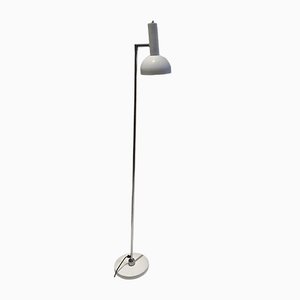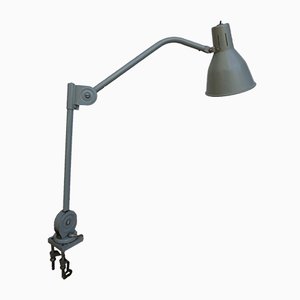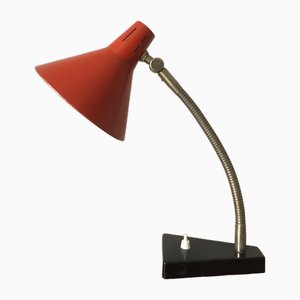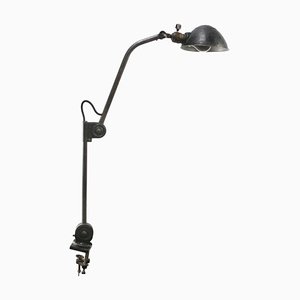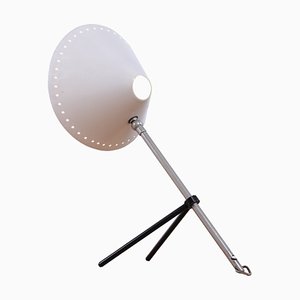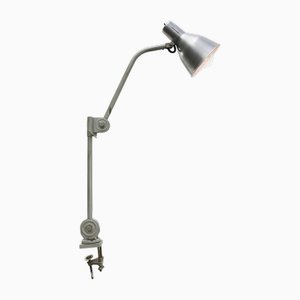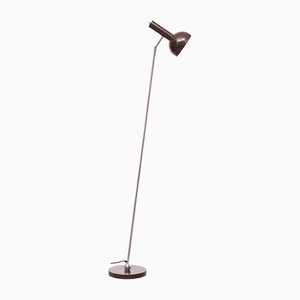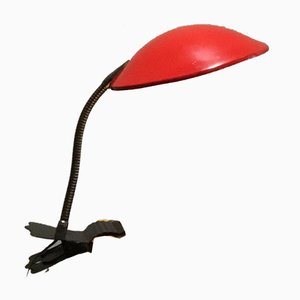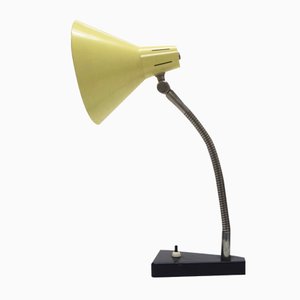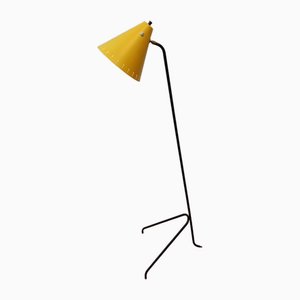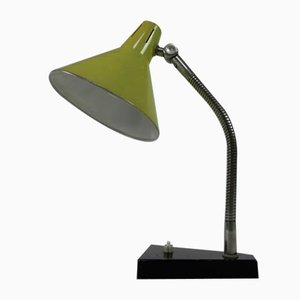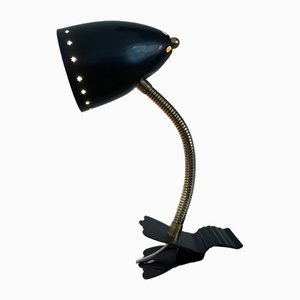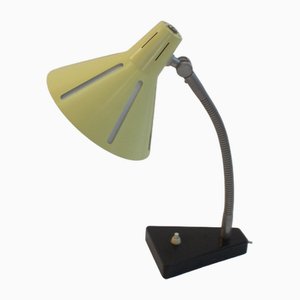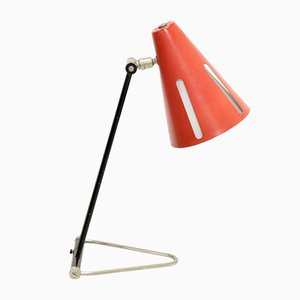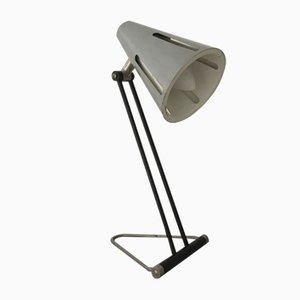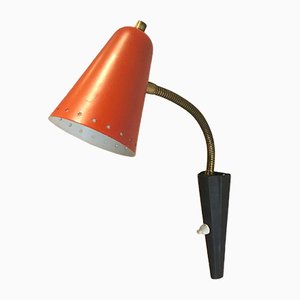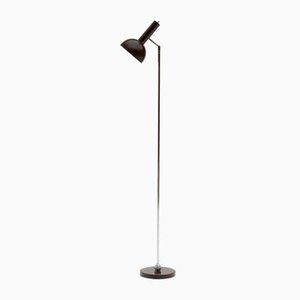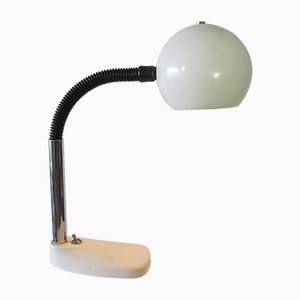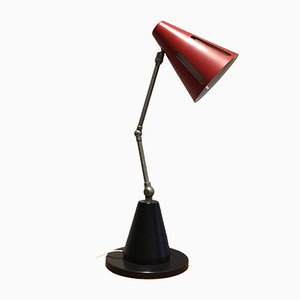
Dutch modernist industrial designer Herman Theodoor Jan Anthoin (H. Th. J. A.) Busquet was born in Holland in 1914. Even though his legacy remains strong through the minimalist lighting designs available on the vintage market, little verifiable information about Busquet’s life and career survives—save for a few brief and conflicting biographies.
Around 1932, Busquet became the design director of the Dutch lighting manufacturer Hala, based in Zeist. Like Busquet himself, Hala has a clouded history, and it’s unclear whether the company was founded as an importer of German light bulbs in 1909, or if it was started under Busquet’s direction in the 1930s. In either case, Hala was one of the first lighting manufacturers in the Netherlands. During the Great Depression, Hala began producing cost effective products utilizing pipe and rod iron. After the Second World War, Hala’s simple and affordable designs were praised by the Goed Wonen Foundation, which aimed to address postwar material shortages and improve the quality of daily life through well-designed products for the home.
Most likely drawing inspiration from the De Stijl and Bauhaus movements, Busquets designs are radically simplified and have a coherent relationship between form and function. Like Gerrit Rietveld, his work often incorporates a primary color palette, with adjustable and directional features, often with a playful quality. His Pinocchio Lamp (1954)—which features sleek, articulated legs that form a tripod base, paired with painted metal shades in a choice of red, blue, yellow, green, white, or black—is the best known example this signature approach. Busquet’s other iconic designs include the 144 Desk Lamp (1932), 122 Lamp (1940s), and the innovative, adjustable Sun Series Pendants (1955).
Busquet worked for Hala until 1955 and passed away in Amsterdam in 1977.


